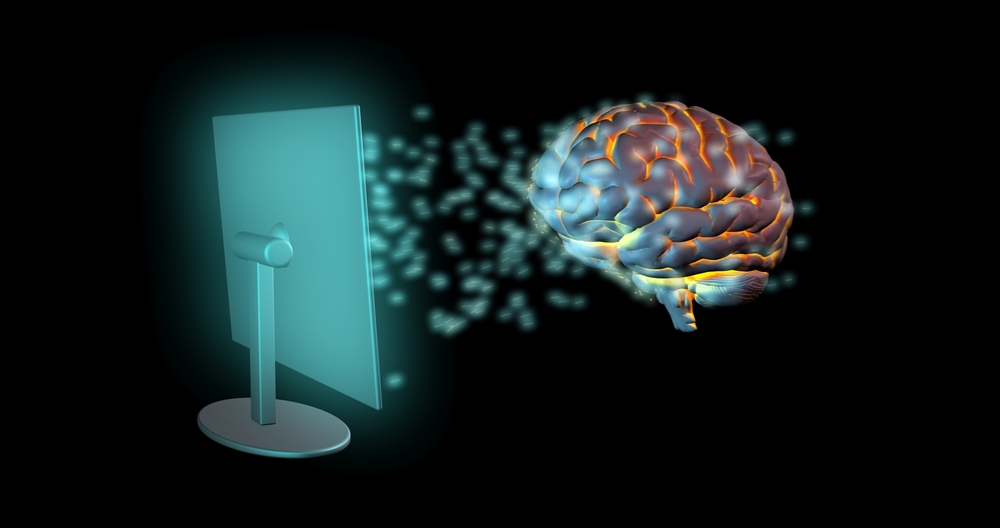Brain-Computer Interface Allows ALS Patients to Type Much Faster
Written by |

A computer-brain interface developed by American researchers allows people with paralysis, including amyotrophic lateral sclerosis (ALS), to type much faster than with other brain-control devices.
The BrainGate interface (BCI), which is surgically implanted in the brain, works by recording brain activity with a sensor. The information is sent to a computer, which interprets the brain activity using algorithms that generate signals. The signals can then be used to control such tools as robotic limbs, powered wheelchairs, and computer cursors.
A team of researchers led by Dr. Jaimie Henderson of the Department of Neurosurgery at Stanford University tested the device in three people with paralysis, as part of a clinical trial called BrainGate 2 (NCT00912041). Two participants had ALS and one a spinal cord injury.
The study, “High performance communication by people with paralysis using an intracortical brain-computer interface,” was published in the journal eLife.
BrainGate allowed the participants to move a cursor on a computer screen that displayed the letters of the alphabet. The participants could “point and click” on the letters to type sentences.
Researchers measured how many words a participant could type in a minute. The best performer could type around eight words, faster “than anyone with paralysis has ever managed before,” the researchers wrote.
“Our study’s success marks a major milestone on the road to improving quality of life for people with paralysis,” Henderson said in a press release.
Proof-of-concept experiments had indicated some time ago that brain-computer devices could help those with paralysis. But the systems’ performance was a problem: It wasn’t good enough for the devices to see widespread use among people with speech difficulties.
Because BrainGate offers a much higher level of performance, it could become a powerful communication-assistance tool for people with paralysis, the researchers said. The next step is to enhance the system so it can control commercial computers, phones, and tablets.
BrainGate2 is still recruiting participants with spinal cord injuries, brainstem strokes, muscular dystrophy, ALS or other motor-neuron disorders in California, Massachusetts, Ohio, and Rhode Island. For more information, visit clinicaltrials.gov.





